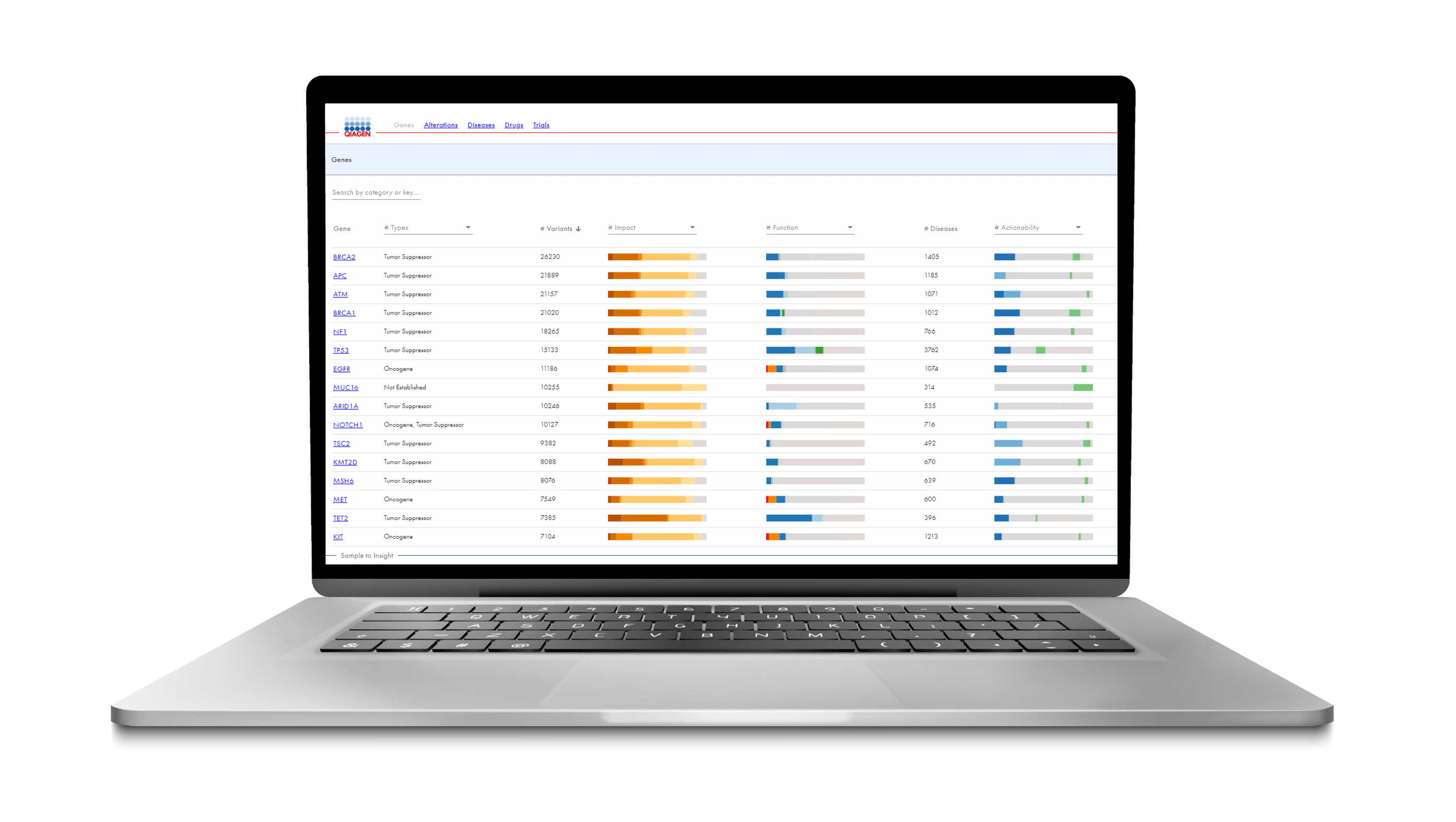


















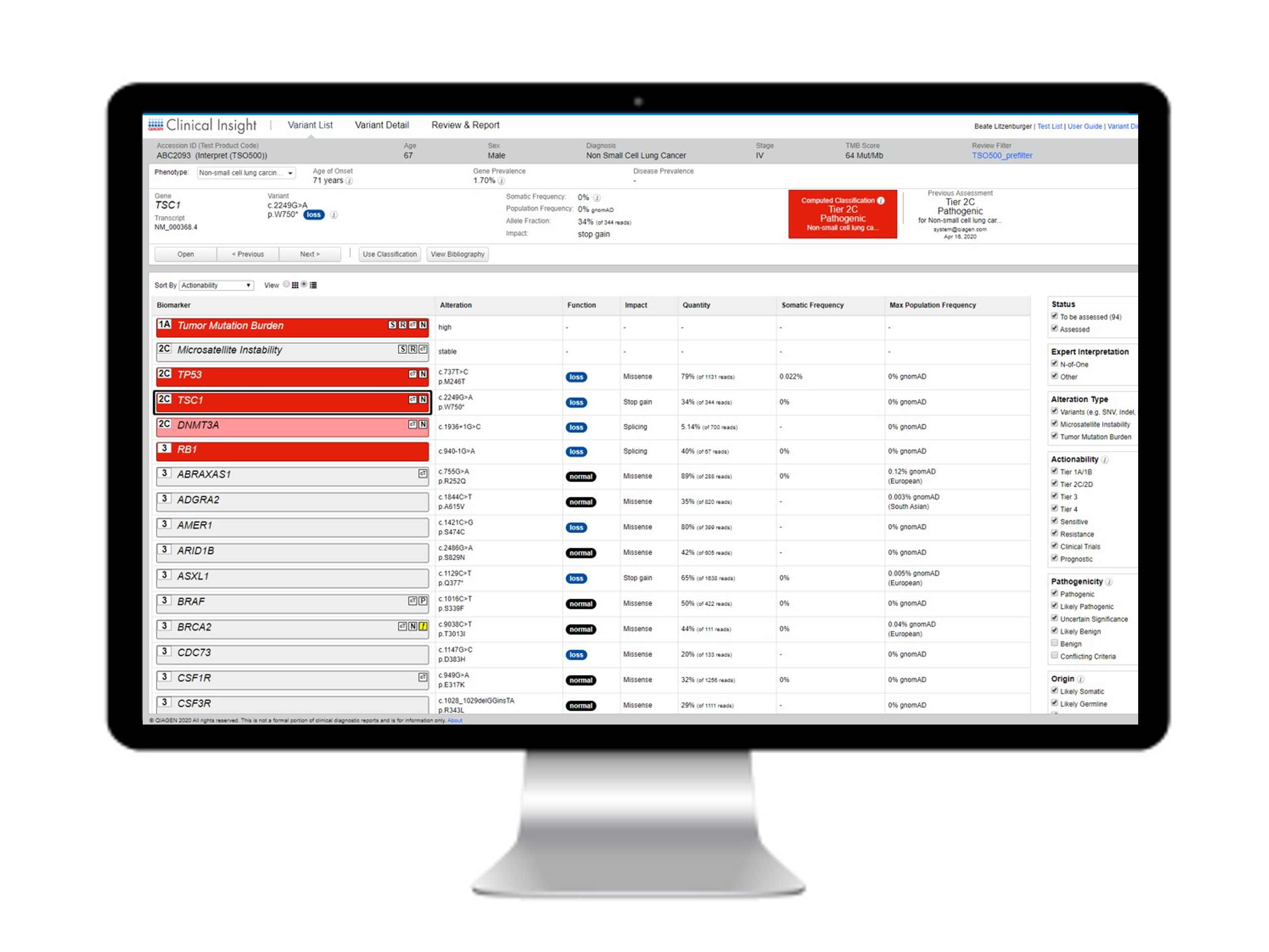

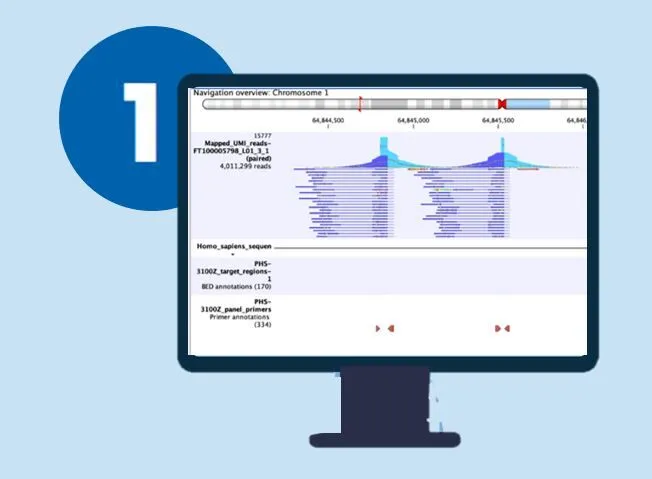
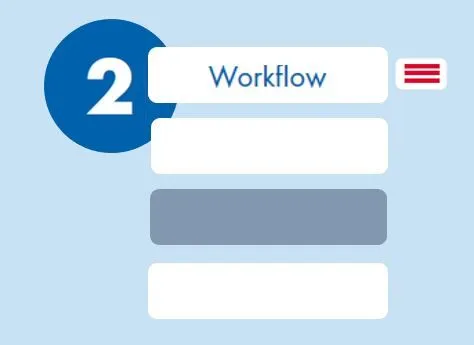
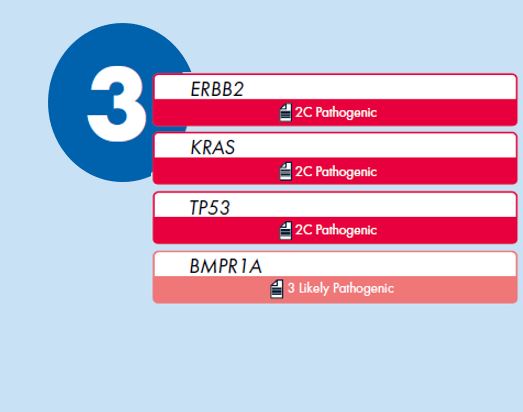

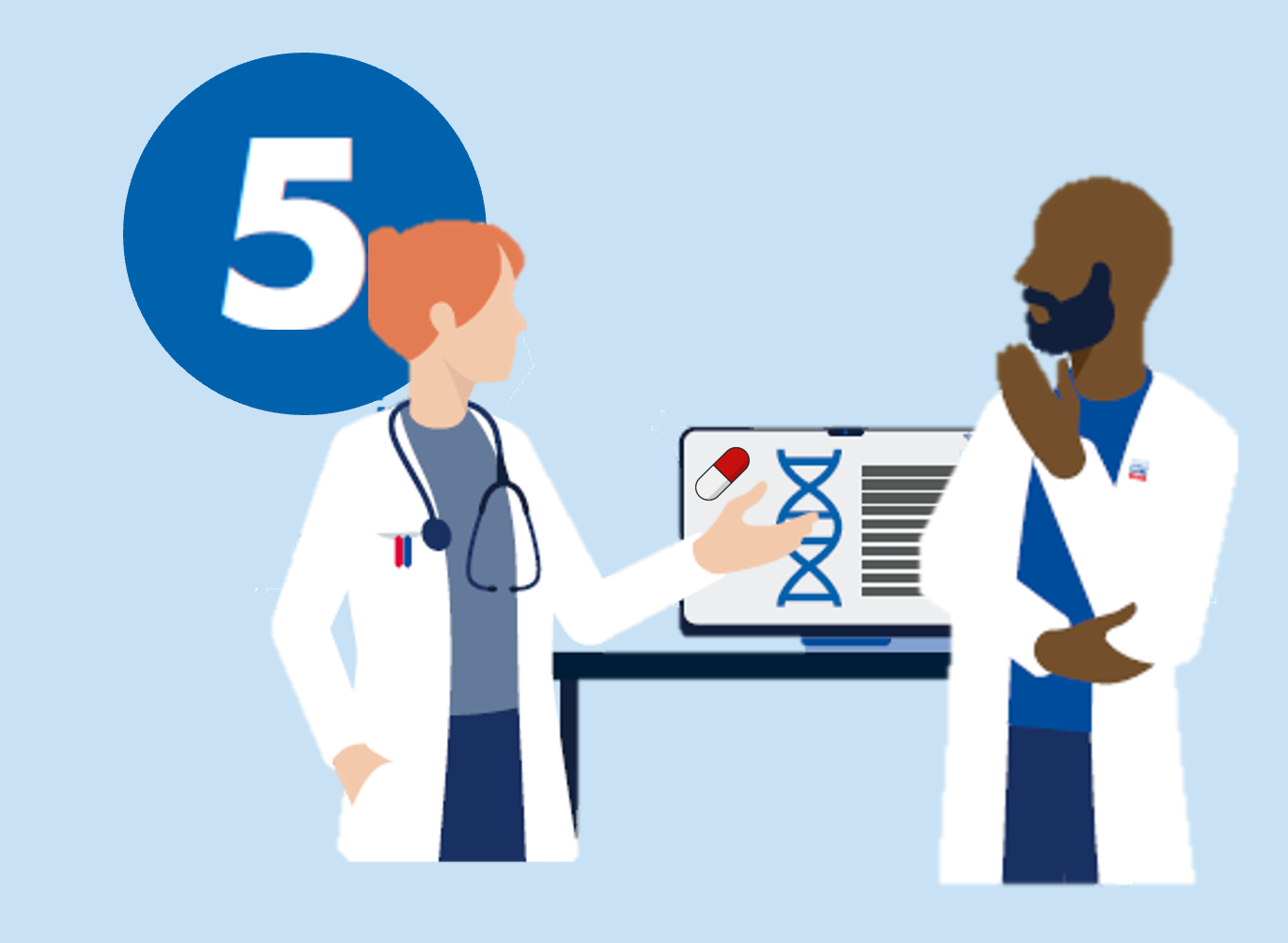

QCI Secondary Analysis is an optional cloud-based service that processes FASTQ files to produce VCF files containing single nucleotide variants (SNV), insertion–deletion mutation (InDel) and structural variant (SV) calls. The module performs quality and adapter trimming, read mapping, deduplication, local realignment, quality control and variant calling and seamlessly connects to QCI Interpret for an integrated and automated FASTQ to report workflow.
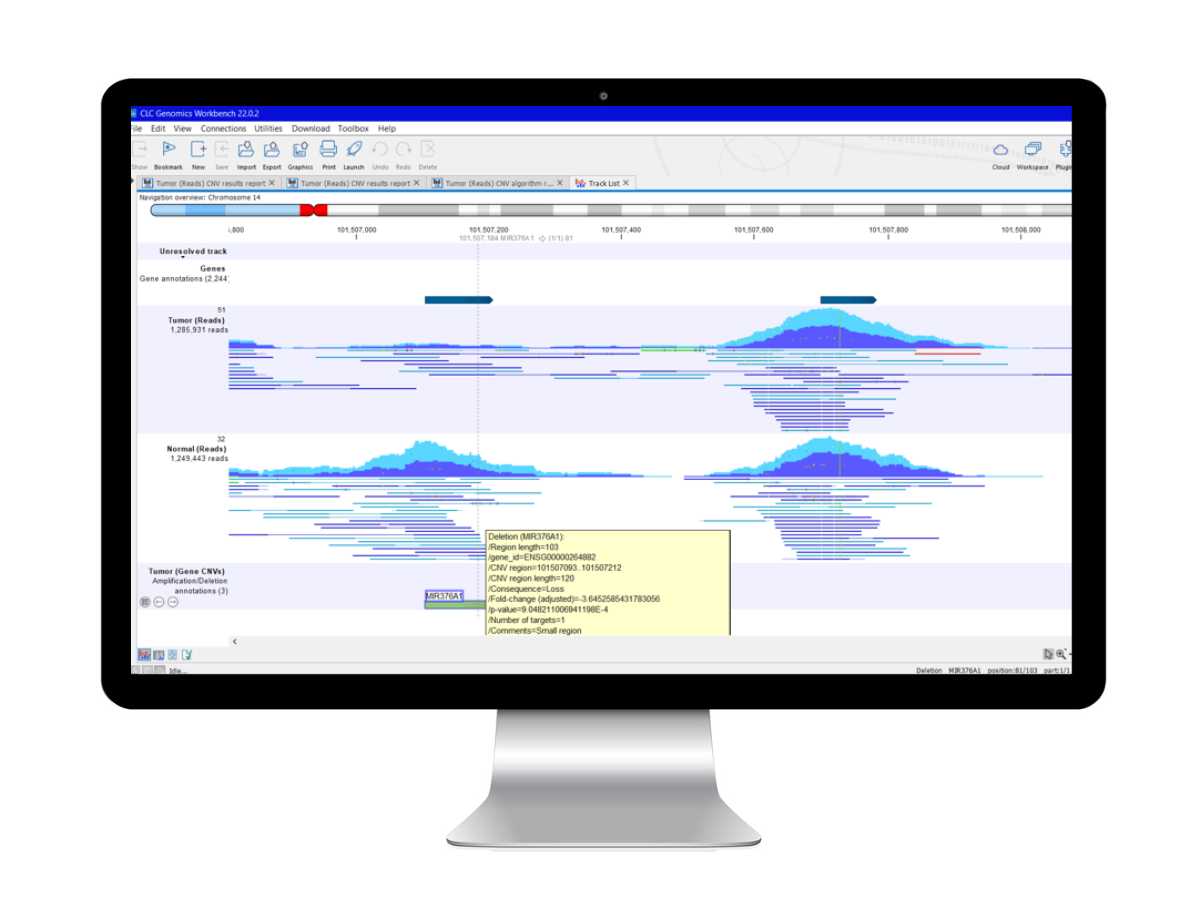
QCI Interpret for Oncology is clinical decision support software that combines the unmatched accuracy and consistency of QIAGEN’s proprietary expert (MD/PhD) curation with the superior efficiency of machine curation (AI-powered curation) to enable high-confidence variant interpretation and reporting. The software dynamically computes pathogenicity and actionability based on the AMP/ASCO/CAP or ACMG/AMP guidelines for every variant in over 31,000 cancer types with full transparency. To simplify and accelerate interpretation, users have access to over 490,000 preformulated, oncologist-reviewed variant impact summaries and the in-software option to submit rare or novel variants to QIAGEN’s professional variant interpretation service. Panel- and sequencer-agnostic, QCI Interpret for Oncology can be fully customized to accommodate targered panels, comprehensive genomic profiling, exomes, and genomes.


